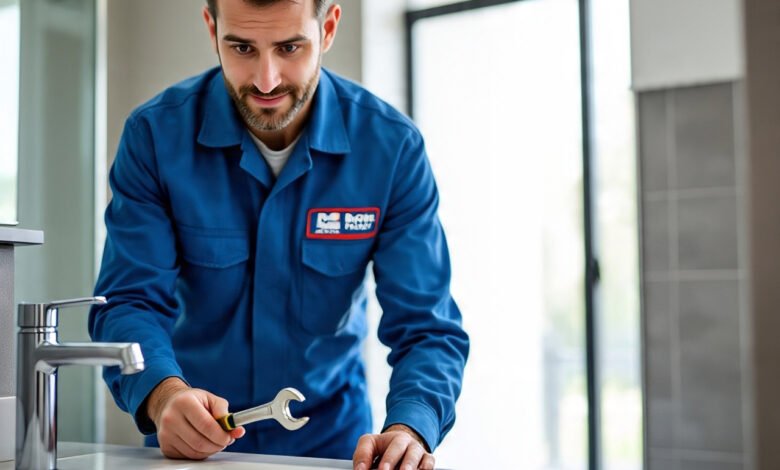When To Hire a Residential Plumber

Maintaining a plumbing system is part of home ownership. Minor issues, such as a clogged sink, can be addressed independently, while other problems might benefit from hiring a residential plumber. Understanding plumbing maintenance helps keep systems functioning properly and supports the overall condition of your home. Here are a few plumbing instances where hiring a residential plumber can help you:
Stubborn Clogs
Minor clogs in toilets or drains are sometimes handled with a plunger. Recurrent issues often indicate a blockage further along the pipe system. Water backing up in unusual areas can signal a clog located outside the home’s interior plumbing. Inspections generally involve evaluating pipe conditions, checking for tree root intrusion, or identifying buildup that affects flow. Recognizing the source of the issue helps determine appropriate solutions and reduces repeated interruptions.
Plumbing professionals use cameras to inspect sewer lines and assess the location and extent of blockages. Specialized augers are often employed to remove obstructions and restore flow through the pipes. Some services include hydro-jetting for stubborn debris or preventive maintenance checks to monitor the health of the sewer system. These techniques provide a structured approach to addressing clogs while minimizing disruption to the surrounding area and supporting long-term functionality.
Unpleasant Odors
A persistent odor of rotten eggs near a plumbing fixture often indicates hydrogen sulfide gas. This gas forms from decomposing organic matter in the sewage system. Such odors may point to a broken sewer line or a damaged plumbing vent. A sewer line malfunction is an emergency that often can only be fixed by a residential plumber. This is because it might cause structural damage to your home when left unchecked. A plumber can assess the severity of damage and decide whether to replace your sewer line or patch up cracked areas.
Water Damage
Ring-shaped stains on wallpaper and ceilings or peeling paint often indicate water damage from burst pipes. A sudden increase in water bills may also suggest significant water loss from a broken pipe. Shutting off the water can help limit additional damage while a plumbing professional evaluates the situation. Plumbers inspect the pipe system to locate the leak and replace damaged sections, addressing the source of the problem and limiting further impact on the home.
Water Heater
A sudden lack of hot water may indicate a water heater issue. Malfunctions can result from sediment buildup, scale, or a faulty heating element. Leaks, unusual noises, and reduced water pressure may also signal water heater problems. Plumbers inspect water heaters to determine the cause and restore proper function.
Rust-Colored Water
Rust colored water coming from your plumbing fixtures indicates corrosion in your pipes. Corroded pipes are at risk of cracking, which may cause multiple leaks throughout your plumbing system. Patching up corroded pipes is a temporary solution, as they may burst in the future. In cases of severe corrosion, it helps to have a plumber repipe your house. Replacing old pipes eliminates the risk of future damage due to old pipework. Replacing your pipework also allows you to upgrade your plumbing system.
Plumbing Installation
If you are planning a kitchen or bathroom remodel, a residential plumber updates the plumbing system and installs new fixtures. In new construction projects, professionals lay and connect pipework and drainage systems to nearby water sources. Water heaters are installed, and shut-off valves are connected and tested as part of the system setup.
Plumbers also work with fixture selection and handle installation according to the layout of the plumbing system. Pipe connections, drains, and valves are integrated to support the flow of water throughout the home. These tasks follow standard procedures for residential plumbing work.
Hire a Residential Plumber Today
Plumbing issues sometimes involve tasks that extend beyond basic home repairs. Specific problems are addressed through professional evaluation and repair, which may include inspecting pipework, identifying blockages, or replacing components. Residential plumbers use specialized tools and follow established procedures for installations and repairs that align with local codes and standards.
